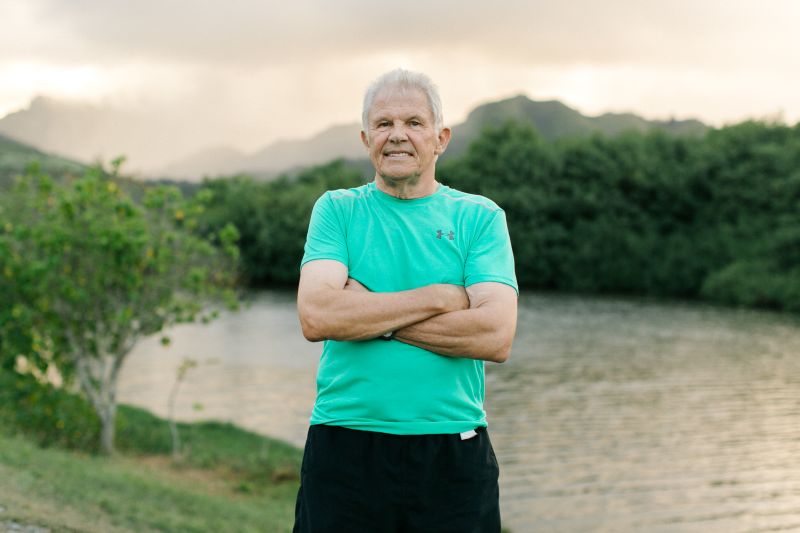Inspire 2017 FALL
Straub: A New Pace in Life
 Running is more than a pastime for Kenton Eldridge, it’s a way of life
Running is more than a pastime for Kenton Eldridge, it’s a way of life

“I think running is one of the best sources for maintaining good health,” Kenton said.
He would know. The 74-year-old has completed 19 marathons in 27 years. At the peak of his training, he was running 75 hours every week.
In 2015 Kenton and his friends decided to do the Big Sur International Marathon in California. He started conditioning for the long-distance challenge immediately.
By February 2016, three months prior to the marathon, Kenton and his running partner had increased their weekly mileage to 55 miles, including lots of hills. Then, while jogging on a treadmill one morning, he stepped off and lost his footing.
“I felt really funny,” Kenton said. “It was something that never occurred to me before. The dizziness and the feeling that I was going to pass out continued, so I said ‘Call the ambulance.’”
Something was definitely not right. On the way to Straub Medical Center, Kenton’s training heart rate went from 132 beats a minute to 232 beats.
“When I arrived at Straub’s Emergency Department I knew my condition was extremely serious," he said. "They told me that my heart rate was at 265."
Kenton was experiencing ventricular tachycardia. The rapid heart rhythm is a precursor to ventricular fibrillation, a condition where the heart’s rhythm is so rapid that it stops pumping blood. This can lead to sudden cardiac arrest.
Fortunately, Kenton’s condition was stabilized and he avoided a cardiac arrest. But, after examination, doctors decided to install a defibrillator. He recovered, and five weeks later, the active grandfather was hitting the slopes, skiing with his two grandkids.
“We usually see ventricular tachycardia occurring in people with other heart conditions, so it was a bit unusual that it happened in someone as fit as Kenton,” said Dr. Jeremy Lum, who is Kenton’s cardiac electrophysiologist. “Thankfully he got medical attention immediately and made a terrific recovery, in part due to his excellent health. “
“I have such confidence in the doctors at Straub,” Kenton said. “I don’t hesitate to go and to recommend it to other people.”
He believes the frightening condition was a result of the way he used to train. In rare cases electrolyte imbalances can contribute to the development of ventricular tachycardia. Drinking water was never a priority for Kenton during those intense running sessions.
“I really pushed it,” he said. “A lesson to be learned is that if you run you have to drink …and get the right amount of electrolytes.”
Lesson learned. Kenton now makes sure to drink at least 13 glasses of water every day of his very active life. The senior bikes, plays tennis and is now considering registering for marathon number 20. He has added confidence in the fact that his defibrillator has tracked a normal heart rate the past 18 months. Kenton’s greater focus on his health and the care he can count on from Straub should help him go the distance.

